Humza Yousaf's relief as family cross Gaza border to safety
- Published
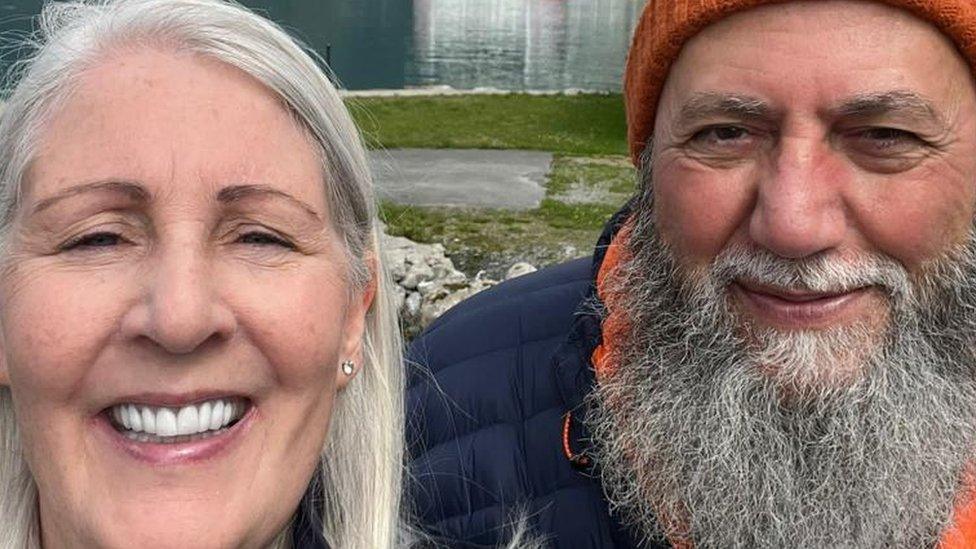
Elizabeth El-Nakla and Maged El-Nakla were visiting family in Gaza when the Hamas attacks happened
Humza Yousaf said his family was "highly relieved" that his in-laws have left Gaza after being trapped in the territory for more than three weeks.
The first minister's parents-in-law had been unable to leave following the deadly attacks on Israel by Hamas.
Elizabeth El-Nakla and her husband Maged - the parents of Mr Yousaf's wife Nadia - had been visiting relatives.
Ms El-Nakla said they were "completely exhausted" after entering Egypt through the Rafah crossing.
They were among a number of British nationals who have begun to leave the Gaza Strip, after Palestinian authorities listed nearly 100 as being eligible.
Mr Yousaf said his family shed tears when they heard the news on Friday.
He also recalled the special moment he phoned his 14-year-old daughter on her school break to tell her: "Granny and Grandad are coming home".
But the first minister admitted the experience of being trapped in a warzone had left the couple "severely traumatised" and warned it would take them some time to recover.
Mr Yousaf said his wife was "so happy" to hear that her parents had crossed over the border.
He said: "You can imagine how many tears have been shed by us just this morning, let alone over the last four weeks.
"But her worry immediately transfers from her mother and father to now her brother, to her granny, to her step mum, to her nephews and niece, and to all those innocent men, women and children who are suffering not a natural disaster but a man-made conflict."
The first minister said his thoughts were with all those affected by the war and renewed his calls for a ceasefire.
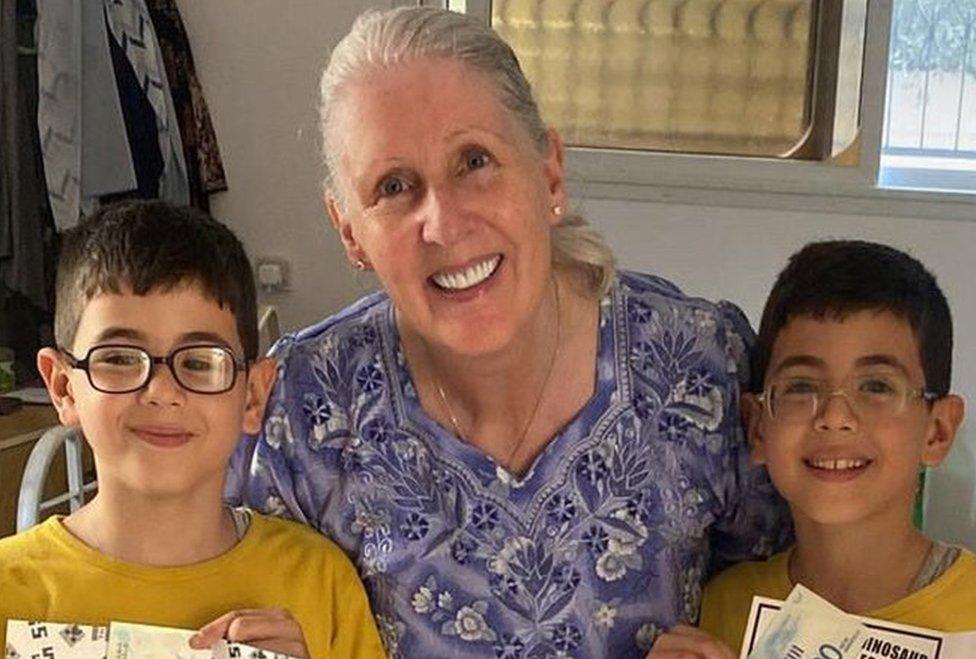
Ms El-Nakla's mother, Elizabeth, with her twin grandsons, who turned nine last month
Mr and Mrs El-Nakla, from Dundee, had spent the past two weeks in a house where 100 people were sheltering, including a child of two months old.
They had travelled to the border on three previous occasions without success.
Speaking to BBC News from a coach bound for Cairo, Ms El-Nakla said: "We are completely exhausted as we haven't slept properly for the past 27 days.
"The past few days have been particularly traumatic.
"We don't really know what's been going on in the outside world as there's been no internet, electricity, clean water and food has been difficult to get."
The couple travelled to Gaza early last month to visit Mr El-Naka's mother, who had a stroke in March but has now recovered.
They were planning on staying for five weeks but just four days into their trip Hamas launched a deadly assault on Israel.
Ms El-Nakla said that leaving her relatives behind had been "incredibly hard".
Mr Yousaf's wife's brother - a doctor in a Gaza hospital - and his family all remain in Gaza, as do her stepmother and grandmother. They are not UK passport holders and were therefore unable to leave.
The Rafah crossing, which offers the only way in and out of Gaza, was opened by Egypt on Wednesday.
A list published overnight by the Palestinian Border Authority said those named must be "present at 07:00 in the outdoor halls of the crossing to facilitate their travel".
Injured Palestinians and 335 foreign passport holders, including some British nationals, were the first to be allowed to cross.
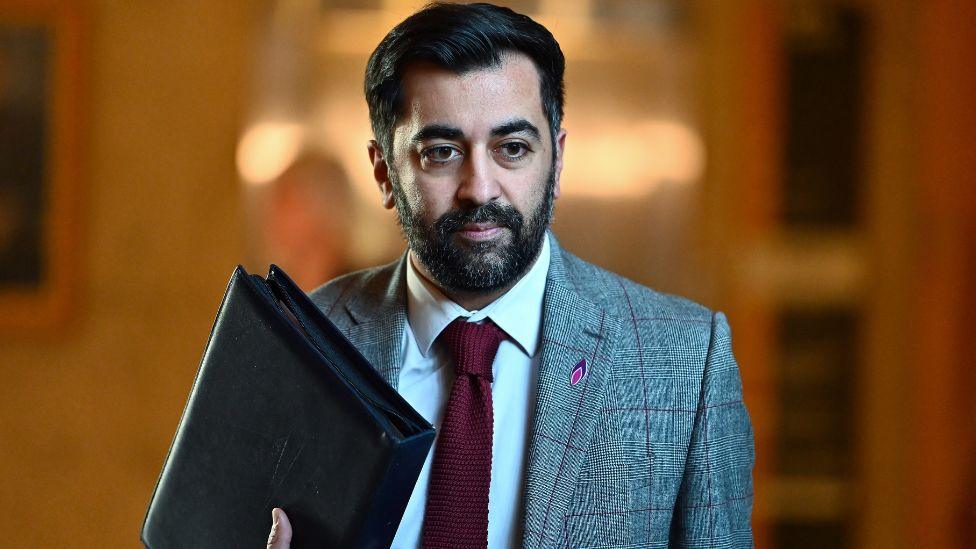
First Minister Humza Yousaf said the last month had been "traumatic" for his family
A statement from Mr Yousaf and Ms El-Nakla confirmed the couple had made it safely through the crossing on Friday morning.
They expressed gratitude to everyone who had assisted the couple, including the Foreign, Commonwealth and Development Office crisis team.
The statement added: "These last four weeks have been a living nightmare for our family, we are so thankful for all of the messages of comfort and prayers that we have received from across the world, and indeed from across the political spectrum in Scotland and the UK."
Scottish Conservative leader Douglas Ross said: "This is great news for Humza Yousaf and his wife Nadia. I'm delighted that their family are safe after weeks of anguish and uncertainty. "
The El-Naklas were among about 200 British nationals believed to have been trapped in Gaza.
Routes in and out of the region were closed after Hamas - which is proscribed as a terrorist group in the UK - attacked Israel on 7 October, killing more than 1,400 people and taking at least 239 hostage.
Since then, the Israeli military has launched a massive bombing campaign on Gaza, placed the strip under a "complete siege" and launched a ground assault on the north of the territory.
The Hamas-run health ministry in Gaza says more than 9,000 people have been killed.
Earlier this week Mr Yousaf said he did not know whether his family was alive or dead in Gaza, as it was under a communications blackout.
Ms El-Nakla said her parents had been without clean drinking water and faced "rapidly diminishing supplies".
Mr Yousaf spoke to the BBC of his feelings of "helplessness and distress" at not being able to do more to get his family home and shared a video of his mother-in-law describing the conditions they were living under in Gaza.

More on Israel-Gaza war
Follow live: Latest updates
Hostages: Children must be off limits, says father of abducted kids
From Gaza: Stories of those killed in Gaza
History behind the story: The Israel-Palestinian conflict

Related topics
- Published4 November 2023
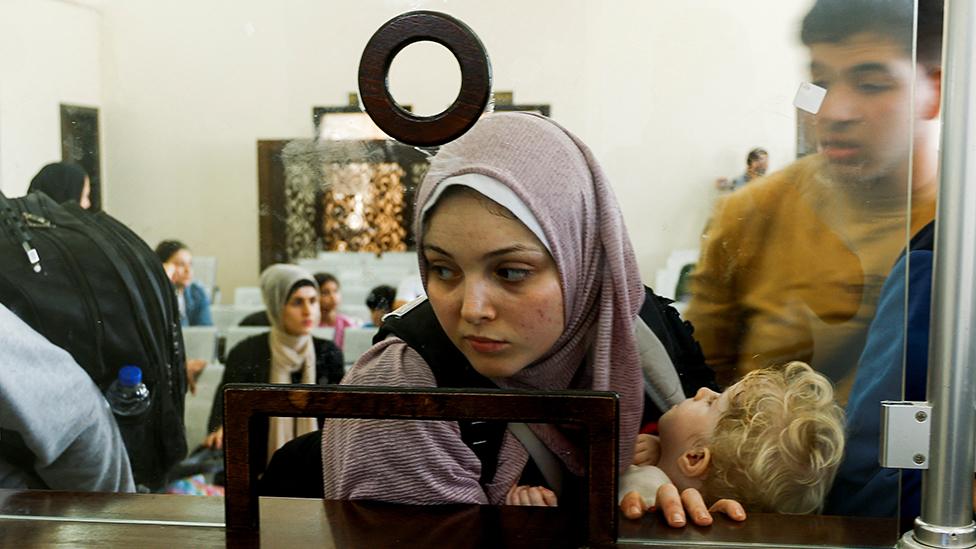
- Published28 October 2023
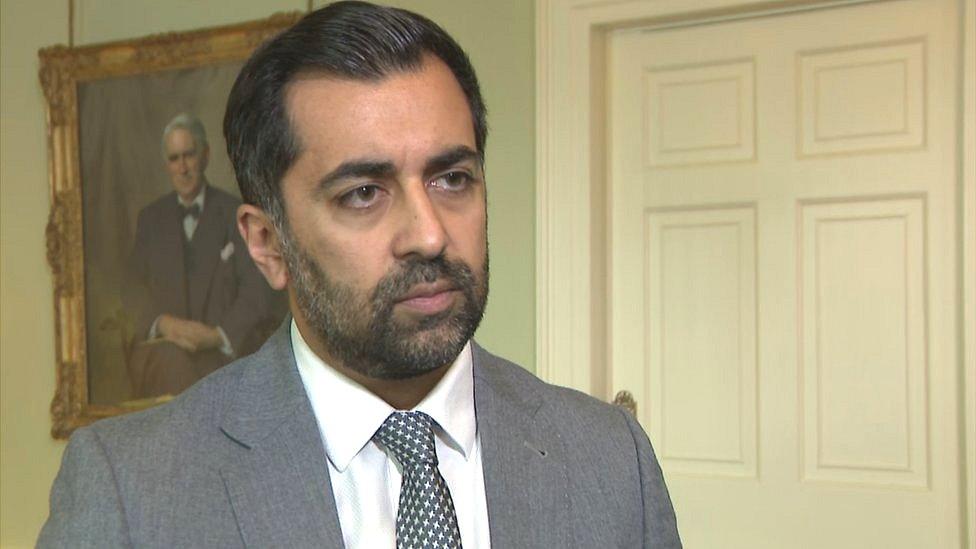
- Published23 October 2023
